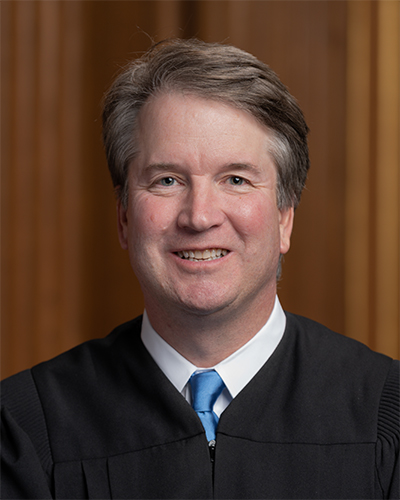Justice Jackson Rips the Six Conservative Justices for Stunning Decision
Jun 28 2024Former Indiana mayor James Snyder was convicted on bribery charges for accepting $13,000 from a trucking company from which his town bought five trash trucks for $1.1 million in 2013. In a 6-3 decision difficult to believe, the six conservatives on the Supreme Court, in a pile-up of decisions in this last week of June among which this one would perhaps not be noticed, voted to vacate Snyder’s conviction, ruling that, because he received the kickback after the city bought the trucks, it wasn’t bribery. It was merely a “gratuity”. It would have 
been bribery only if the trucker had paid Snyder before the city bought the trucks.
The ruling is yet another of a series in which the Court shows its belief that public servants are owed substantially more than their paychecks and should be allowed to accept payoffs as thanks for using their offices to award contracts to businesses or do favors for others. So baksheesh, vigorish, payola, kickbacks – all good now, but take care that payday comes after the deed.
![]() Last year the Court overturned the corruption conviction of two men involved with New York Governor Andrew Cuomo’s administration who were convicted for bid rigging and accepting payment for obtaining a favorable decision from a state agency in the a “show-me-the-money culture” in Albany.
Last year the Court overturned the corruption conviction of two men involved with New York Governor Andrew Cuomo’s administration who were convicted for bid rigging and accepting payment for obtaining a favorable decision from a state agency in the a “show-me-the-money culture” in Albany.
![]() In 2020 the Court tossed a pair of public-corruption convictions ruling that tying up commuter traffic on the George Washington
In 2020 the Court tossed a pair of public-corruption convictions ruling that tying up commuter traffic on the George Washington
Bridge as retaliation against the local mayor for not supporting Chris Christie’s re-election bid for governor didn’t fit the federal fraud statute.
![]() And most notably, in 2016 the Court threw out the corruption conviction of former Virginia Governor Bob McDonnell and his wife for accepting $175,000 in gifts and loans from a businessman who sought favorable consideration from the government for his dietary supplement company.
And most notably, in 2016 the Court threw out the corruption conviction of former Virginia Governor Bob McDonnell and his wife for accepting $175,000 in gifts and loans from a businessman who sought favorable consideration from the government for his dietary supplement company.
In all three — New York, New Jersey, Virginia — the Court’s vote served to set the bar so high that corruption has been given a green light, at least in federal courts.
new in townThe difference in the Snyder case is that Justice Ketanji Brown Jackson is now on the Court. She delivered a scolding opinion that brought along the other two liberal justices who in those three prior cases had unaccountably voted with colleagues to make the decisions unanimous. Jackson directly insinuated that certain of the Court’s majority were of kindred mind with Mayor Snyder, saying that “Snyder's absurd and atextual reading of the statute is one only today’s Court could love.”
Writing for the majority, Justice Brett Kavanaugh, referring by number to the federal anti-bribery statute, opens 
Justice Kavanaugh
with…
"The question in this case is whether §666 also makes it a crime for state and local officials to accept gratuities — for example, gift cards, lunches, plaques, books, framed photos, or the like — that may be given as a token of appreciation after the official act."
Or such innocent gratuities, he offers, as parents who tip a teacher at end of the school year for the great job done educating their child.
That hardly equates to the $13,000 paid to Snyder, and in the instances of large, lucrative contracts awarded to construction companies by local governments, the graft can soar far higher.
Kavanaugh writes that the conviction should be vacated because federal law does clearly make it a crime for public officials to accept “gratuities"; it unfairly leaves it to prosecutors to decide whether a gift should or should not be prosecuted when a decade in prison could be in the offing, and for officials therefore having to guess whether accepting a given proffer would be risky.
Kavanaugh questions why there should be any federal statute at all. Under the ethos of federalism, why should the central government be allowed to intervene in state matters? He seems not to realize that Congress passed the law because there needs to be a federal right to step in because the citizenry out there in some American towns would otherwise have no recourse against corrupt local governments where officials are on the take and law enforcement, too.
The question of whether or not officials should accept handouts at all was not broached by Kavanaugh.
too close to homeNot surprising, given certain members of this Supreme Court. Investigative reporting by ProPublica exposed in a series beginning in April of last year that billionaire Harlan Crow over a twenty year span had paid all costs to treat Justice Clarence Thomas to flights on his private plane, vacations on his private yacht, vacations in exotic locales; had bought a house from Thomas and relatives for Clarence’s mother to live in (rent-free); paid private school tuition for Thomas's grand nephew – very little of which Thomas had declared according to law.
Since then, Fix the Court, a non-profit that describes itself as a nonpartisan advocate for greater openness and accountability in the federal courts, has built a record of all emoluments received by Supreme Court members. Across the twenty years from 2004 and 2023, the justices have accepted 445 gifts valued at $4,780,720, they say.
Thomas’s receipt of largesse accounted for most of it, with FTC tallying $4,042,286. Justice Samuel Alito is next with a bit over $170,000. To give credit where due, the justices who had taken in the least are Amy Coney Barrett ($500), David Souter who retired in 2009 ($349), and Kavanaugh ($100).
Reading Justice Jackson's dissent, lawyer Dahlia Lithwick got the picture:
”She is throwing a little shade the way of Clarence Thomas and Sam Alito, who seem very comfortable taking … do I want to call them bribes? Do I want to call them gratuities? Do I want to call them million-dollar friendship bracelets?"
The Wall Street Journal, which stands behind the right-wing members of the Court no matter their malefactions, editorialized that Thomas and Alito have been accused by Democratic lawmakers of abrogating ethical responsibilities despite a lack of evidence that either of the justices' decisions were influenced by outside parties. Should that be the only criterion?
challenging kavanaugh
Justice Jackson began her dissent with what everyone in the public not a crook thinks, “Officials who use their public positions for private gain threaten the integrity of our most important institutions”. She faults the 
Justice Jackson
majority throughout for straying beyond the unequivocal language of §666, which imposes penalties on those who “corruptly” solicit, accept, or agree to accept payments “intending to be influenced or rewarded.” A reward is bestowed after the fact; the statute unmistakably covers what the majority has now decided cannot be federally prosecuted no matter the amount of money that will now freely flow across America.
Ms. Jackson must be wondering about this nest of corruption she finds herself in, whether the justices on the right end of the bench are gutting the part of §666 to shield Thomas or Alito from corruption lawsuits?
In any case, the Court has raised the bar making it ever more difficult to fight corruption. As Mark Joseph Stern, a principal writer at Salon, puts it, "The court is basically just legalizing a form of bribery that’s done with a wink rather than a handshake."
Please subscribe if you haven't, or post a comment below about this article, or
click here to go to our front page.

